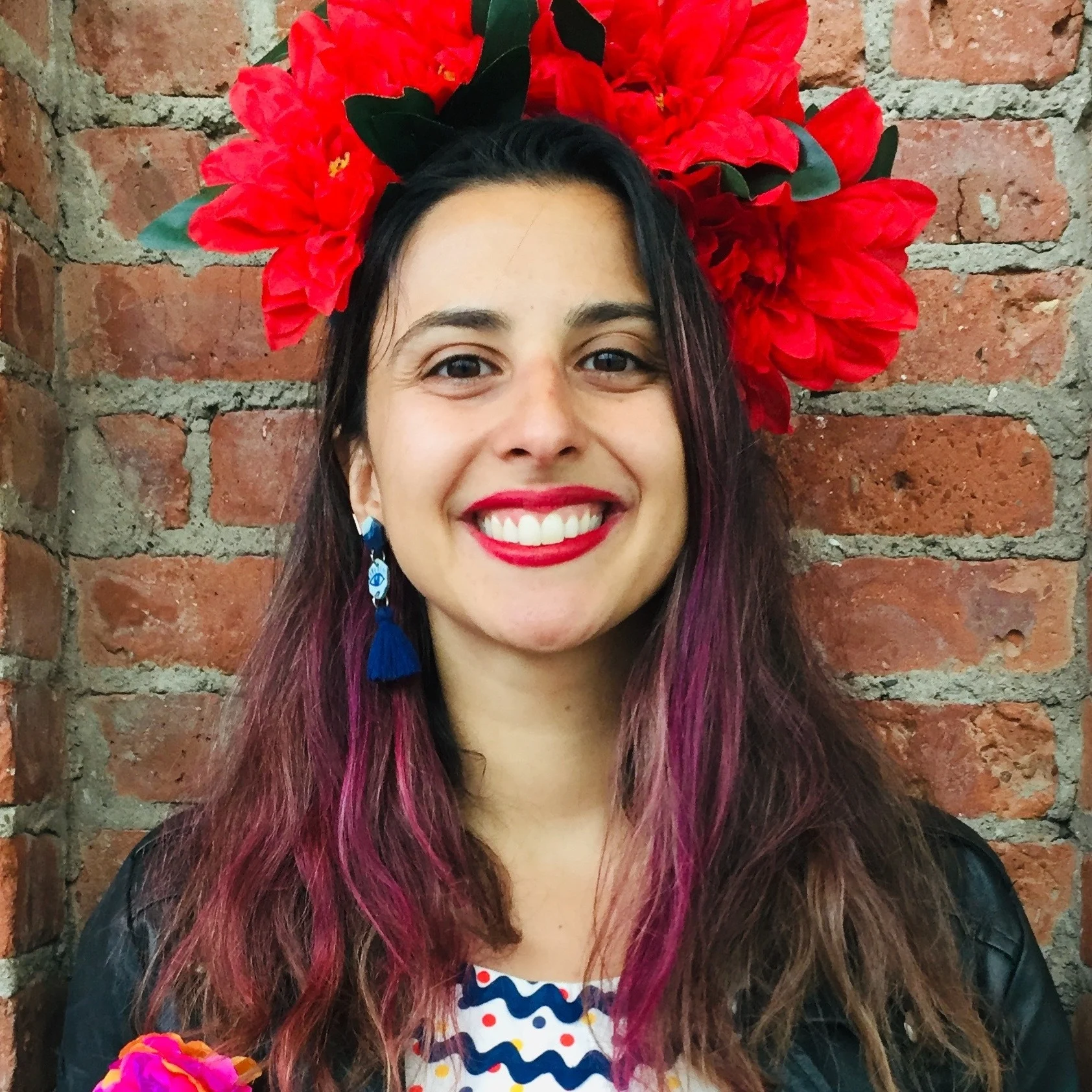An actor and YouTuber with ADHD talks about social media burnout
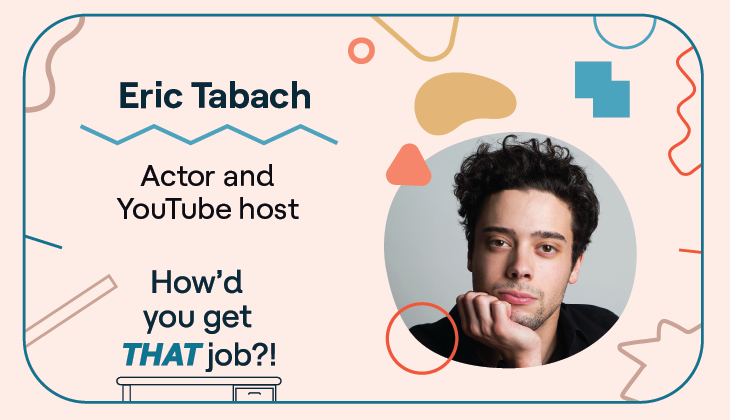
Stay in the know
All our latest podcasts delivered right to your inbox.
When Eric Tabach, a YouTube host and producer for the channel Yes Theory, went to Ukraine, he didn’t just want to create a video. He wanted to make a difference in the war. Eric grew up with ADHD in a Ukrainian family in Russia. As a child, his endless energy and racing mind led him into theater and into making YouTube videos at home.
Eventually, his family moved to the United States, where he acted in movies. He started college but then dropped out. Social media was calling. He became the mastermind behind huge viral videos for Buzzfeed, as well as his own YouTube and Instagram channels. Then he burned out, and it all came crashing down.
In this episode, Eric talks about his life as an actor and YouTuber with ADHD. He shares how his need for external validation led to months of burnout before he found a new focus, part of which is helping the people of Ukraine.
Listen in to learn about Eric’s wild ride. And get his advice about making it on YouTube and social media.
Related resources
Episode transcript
Eric: I mean, it's crazy to me that I didn't complete college because there was zero part of me that thought not going to college was even an option. I mean, I was the first in my immediate family to not go to college. Usually people are like, "I'm the first to go." Like, I was the first to drop out.
Eleni: From the Understood Podcast Network, this is "How'd You Get THAT Job?!," a podcast that explores the unique and often unexpected career paths of people with learning and thinking differences. My name is Eleni Matheou, and I'm a user researcher here at Understood. That means I spend a lot of time thinking about how we find jobs we love that reflect how we learn and who we are. I'll be your host.
In a recent Lego poll, nearly 30 percent of young kids said they wanted to be a YouTuber when they grow up. Well, today I've invited a YouTuber with ADHD onto the show to share what his career is like. Eric Tabach is a popular YouTuber, social influencer, actor, and comedian. He has over 300,000 followers and 20 million views on YouTube and 600,000 followers on Instagram. He was the creative mind behind dozens of viral videos on Buzzfeed and is now a host and producer with the YouTube channel Yes Theory. He also co-hosts a hilarious and successful podcast with his mom and has acted on TV shows like "Law and Order," and you'll be seeing him in more projects soon. Welcome to the show, Eric.
Eric: Thank you so much. I'm excited.
Eleni: So people do a lot of crazy stuff on YouTube. Rumor has it that you recently just got back from Poland to potentially extract your father from Ukraine. I would love to hear about that if you're able to talk about it..
Eric: A hundred percent. Yeah. So, I work with these guys on YouTube called Yes Theory, and maybe a year ago I stopped working on my own YouTube channel and stopped collaborating with a lot of other YouTubers 'cause I, I started to have a negative relationship with the space. And I didn't want to just do absurd content. And, but these guys, Yes Theory, felt like they were doing very elevated things, and they've made a lot of documentary films that I like. And everything felt very positive and smart and clever. And so I've been working with them for about a year, and it's been awesome. And then, I was in Hawaii shooting an episode for them. So I was in, you know, luxury, just exotic beauty. And then obviously everything happened with Ukraine and my father was in Kiev, it was his birthday. He was celebrating when they started bombing that night, while he was asleep.
And, so he has PTSD cause he was in the navy and he at first thought it was just maybe an episode or something. And then all his friends woke up in the house as well. And they were like, "No, this is real, war started," so they couldn't believe it. So the moment I heard about that — and my mom's from Kiev, our roots are Ukrainian and my dad was born in Moscow, so he's technically from Russia now, which was all the Soviet Union, but we all identify as Ukrainian. And, um, the moment we heard about it, Yes Theory started talking to me and we felt like we needed to go. We actually wanted to go to Ukraine before all of this happened. We wanted to go in January to do a piece about how beautiful that country is, and the stresses of being on the brink of war. We were going to do a video literally called "This Country Is on the Brink of War." And then, obviously, they actually invaded which nobody thought was going to happen. And so we immediately started having conversations about what can we do that's not — we didn't want to be some sort of YouTuber where that went and was like, "Oh, we can get content. Like, let's go get good content. Let's like go into a war." We wanted to do something that was actually meaningful. And my dad called us and said, like, "You guys have to come. It's so important for there to be coverage of this, and there's a lot you can do to actually help." And so we immediately — I went straight from Hawaii, landed in L.A., and took a flight immediately to Poland. And so when we got there, we had zero plan, and we really tried to gauge what was necessary to be done there.
And we didn't want to cross the border for the sake of crossing the border, and be a nuisance. And we realized that it would take days to get back in and we would just be taking spots in line and we weren't prepared or professional.So, we ended up coming up with a plan that was to basically just raise an insane amount of funds and use the money immediately on the ground. 'Cause we saw that a lot of people wanted to support things that can be immediately used rather than donating to big charities. And we saw what was needed with the help of refugees and then how to get people out.
So we bought vans and buses and had drivers going in and getting women and children. We helped set up like refugee centers in Warsaw and we're helping people out in the train stations, feeding families, helping them get flights, helping them find foster families, getting them phones for whoever had no way to communicate because they left their stuff.
So we were there and now we have a team of like, I don't know, like, I don't know exactly what number, but it's like 25 volunteers constantly circulating just from their community, the Yes Theory community, coming and volunteering and working out of an office in Warsaw and continuing to use the money on the ground right now. We raised over like $500,000, uh, I mean over 500,000 euros. So it's been crazy and being there was like, it was really surreal to see and then to know that my, my dad was like, you know, we joke about this, but he was, it was like I was hosting a refugee once I got him, you know. He's my own dad, but he had one backpack on his back. He left everything there. He didn't change his clothes ever. He could. That's the thing, that's the thing I laugh at. Like, he could go and buy himself some clothes, but he didn't, but he was just, he was so busy like livestreaming to his family, friends, and audience to explain what's going on, give guidance. He's helping organize a lot of military aid. It's crazy to see how good of a job Poland's doing. And I just hope that we, just — Ukraine gets more support
Eleni: Yeah. Wow. Well, thank you for sharing that. I'm sure when you started pursuing this career, you never would have imagined it would have taken you, like, there, right?
Eric: It's crazy. Never imagined that we could get so many people to want to support something and to fly — I mean, there's one thing to have a fan message you that they like your stuff, or have a fan stop you on the street. And then to have people that follow your stuff, to realize that the people that watch you have a certain character to be able to buy a ticket and fly to Poland, to go and help and stop their life. Like, that was surreal to see that the community that we've built is really on another level.
Eleni: Yeah. Yeah. Well, congratulations on that.
Eric: Thank you. Thank you.
Eleni: So, you know, we are here to talk about ADHD.
Eric: Yeah.
Eleni: But I think, you know, your background is also like super relevant, and I would love to hear — I know that you grew up in Russia, and there are some challenges that came up while you were in school there that are perhaps related to your ADHD challenges. So, you know, I'd love to, like, hear about that to start off.
Eric: Yeah. ADHD and Russia don't go together. Oh, it's crazy now to talk about, to realize that I grew up in Russia with everything that's going on, but yeah, I had severe energy, just extreme energy when I was a kid, and I couldn't focus at all. I would run around the classroom. I would literally stand on my head. Any chance I got, like when my family, we would sit down to watch a movie, I would be on my head. And that sounds like an exaggeration, but it wasn't. I would, I like to breakdance. That was the only way for me to like, be in one spot would be to be upside down. I constantly needed stimulation, and I started creating my own world in my bedroom. And I would talk to people, like imaginary people, and create scenarios and performances and do all this stuff. And my mom got pretty concerned about it and didn't understand if that was normal, because my older sister never did that. And she took me to a, I'm pretty sure like a Russian doctor who ended up saying I might be schizophrenic. And my family freaked out. My dad never gets scared, and he was really nervous. And they were like, "How is this even a diagnosis at this age?" So they ended up taking me to a different doctor, an American doctor, just to double-check. And he was like, "No, your son's very creative. Enroll him in a theater." And so that's how I discovered the arts in a way to express myself in a healthy way.
And teachers started to allow me to use more creative ways to feel engaged in what I was learning. But I still really, really struggled with just maintaining information and being able to — I just didn't hear, I couldn't hear. That's the only way to describe it. I just didn't, wasn't able to listen.
Eleni: Yeah, well, that's a really intuitive doctor to make that suggestion. I can't imagine many doctors are like, "Yes, my diagnosis is theater."
Eric: Yeah. I guess that's the way that I, that's the poetic way that I've probably reimagined this story in my head. I don't know exactly what he said, but that was the trajectory that it took. Whatever he said, my parents understood it.
Eleni: Yeah. So it's so interesting. 'Cause you were saying, you know, you're super creative and like you had this crazy imagination, and then, you know, you went into theater. So I'm interested in like how that kind of creativity translated into, you know, your acting career, your YouTube career, like, it sounds like it came from very early childhood.
Eric: Yeah, it was, it, it also, it feels very unintentional just, like how it manifested itself when I was young was I started implementing it in school once I realized that this is what I loved. So instead of bringing in a presentation that was a poster that we had to do about the leaders of the Soviet Union, I came in and performed. I was Stalin. I think I was in like third grade, and I came in, and I — the way I taught my classmates about Stalin was by playing him and then doing this dramatic death scene and all this stuff. And I'm surprised teachers allowed me to do this but, uh —
Eleni: This was still in Russia?
Eric: This was still in Russia, yeah.
Eleni: Did a dramatic reenactment of Stalin's death in Russia. Let's just —
Eric: Yes. Yes. Um, and then it started to grow in ways once YouTube came out. I was like, I want to make YouTube videos. I want to create any film I can in my spare time. I want to meet friends and do performances with them.And then I think that became the defining kind of movement in my career was just constantly creating something and finding an outlet for it. So once I moved to America, I was YouTube, YouTube, YouTube, and acting and auditioning, and then meeting people and then Buzzfeed. And then, Yes Theory, like, all this stuff just fell together because I was — any opportunity I found, I grabbed onto it.
Eleni: So you started making videos when you were around 13. So clearly you love being in front of the camera. Like, what do you love so much about that?
Eric: I don't — I really have no idea. I just, I think all the people that I looked up to at the time were people on camera, and they were so important to me. So I think it was the only thing I really knew, was like anyone who was doing what I loved was on camera, 'cause that's how I was watching them. And so I thought that the only way to do what I love was to put myself on camera. And I wanted to share it with everybody. Like, every family dinner, I would perform like a joke or monologue or something. And I just wanted people to watch, and I wanted people to see this absurd thing that I was doing. I thought it was just really unique, because not a lot of people around me were doing it.
Eleni: How old were you when you moved to the U.S.?
Eric: I moved when I was 15, so that's sophomore year.
Eleni: When did you get your first acting gig? How old were you, and what was that story?
Eric: My first like professional gig, when I was getting paid, was my last year in Russia. I think I was like 14, and it was a movie called "Rorrim Bo and the Magical Goblet." And I don't think it ever got made, but it was like a 3D cartoon and they —
Eleni: That sounds cool.
Eric: It was really cool. They wanted to do it in Russian and in English. So I think that's why they hired me, because I could speak both languages. So I played like the main weird furry guy. He kind of looks like me if I was a creature, and they put like all the avatar dots on me, and it was like motion capture, and I thought I was an avatar. I was like, so excited. But it was very, very Russian. It was very janky. Like I had to do a scene where a bird was carrying me and then like dropped me. And they just tied like a rope, like a tug-of-war rope to the ceiling and then like wrapped my legs in it. And I thought my legs were going to like, I mean, they were getting burned from the, it was — SAG was not involved. There was no like unions protecting me. It was, it was terrible. So that was my first paid gig, and they were paying really well. And I was like, "Oh my God."
And then when I moved to America, I think at 16, I did my first movie. It was an indie film.
And then the second film I did was called "Love Is Strange," when I was also 16, with like Marisa Tomei and John Lithgow and Alfred Molina. It was like, all these stars that I was thrown into being on set with zero experience.
Eleni: Wow.
Eric: So it was really cool. I started working, yeah, when I was, like a junior in high school. So it was crazy. But I was still like doing the schoolwork, like on my flights or trains. Like I was just constantly, I was so disciplined. I think because of my ADHD, I realized that my only way to succeed was just to be so disciplined. So there was no messing around. I didn't, I didn't, I didn't screw around, like at all.
Eleni: So interesting. I think one thing that's really interesting is it sounds like you found something that you really loved at a very early age. And you knew it was something you wanted to do. And then you still went to college and that didn't quite work out, but I kind of want to hear, like, what was your rationale around like still going to college? And what made you decide that it like wasn't for you?
Eric: With college, I think, that level of hyperfocus, I think there were anchor points in my life. Like when someone would say something to me and it allowed me to hyperfocus, I would really attach to that. So when I was told that getting into a good school was a way to measure your success and that was what would set you up for life, I latched on to that. I was like, in school because I knew I wasn't, uh, that good at school, like naturally gifted. A lot of people didn't have to study or can take a test and just do well. I would overcompensate and I would prepare like a month in advance, and I would always do my assignments really early. I wouldn't procrastinate. 'Cause I knew it was impossible for me to, you know, get things done in that fashion.
And I was the kid in school that was like, "Oh, you didn't study. Like, you're dead. Like, your life is over. You're screwed." Like everything was so dramatic for me because I had decided that college was the thing I was going to prove my worth with.
I mean, it's crazy to me that I didn't complete college because there was zero part of me for my entire schooling that thought not going to college was even an option. I was, I was the first in my immediate family to not go to college. Usually people are like, "I'm the first to go." Like, I was the first to drop out. So it was, I think that's the reason I decided to go to college because there was zero — no one told me that there was another option. And, I went there and I immediately realized this whole hype, this whole buildup of what university was supposed to be, for me, it wasn't there.
I was, like, "Oh my God, this is just school. It's the same thing." It's just like, there's, it's just what? And I was, I'm just older. And, and like, it's a different setting, but I was already working in high school. I was going to New York every day. I was doing movies. I was networking. I was hanging out with, you know, people who were 30 or 40, and all ages and ranges, and the benefit that a lot of people get from school is to network and to experience this growth and this discovery of who you are. And I was so in the mentality of, "I need to succeed in the world already," that I'm not going to go to college parties; I'm not going to take advantage of the facilities and all this stuff. And so that's why I left. There was just so much for me outside of the college setting. But I do think there's a lot of benefit for a lot of people to go to college and for some people to not go to college.
Eleni: No, it's all about recognizing like what's right for you, right?
Eric: Yeah, so for me it was just, ugh, I hated it so much.
Eleni: Where do you get your inspiration for your videos, like now? Like where does it come from? Is it still like crazy imagination? Do you have all the —
Eric: Yeah, it really, it really depends on the video. For me, the things that have resonated most just come from my life. It'll literally be sometimes out of nowhere, something will, a thought will come into my head, you know, misfire, and my brain will somehow create an idea. A lot of other times it's just walking around, or something happening in life. And my brain taking it a step further, like taking that moment, processing it, and being like, "Oh wait, what if I do this with this experience?" And then it'll grow into something way bigger than that.
Just to give an example — I did a mini-documentary, like a small short one about a Holocaust survivor who has the most incredible story ever. And he became a family friend of ours when I was about 16. And ever since I met him, it was my dream to tell his story. So the moment I got to Buzzfeed, it was one of the first things I did, even though they said, "Well, wait until you get hired full time, because it's a risky video to do something so serious. And we don't know if it'll go viral, and you're being judged on numbers right now." But I was like, "No, no, no. I only have a couple of months here. If I don't get hired, like this is the thing I have to make." I had the idea already that I wanted to tell this story, and then I had to come up with an angle for it to be watchable. Like, how do I tell this thing? And that's where more of the mechanical energy went towards. But that was just something from life. It was just, uh, a person that really cared about and wanted to do something with him. Every concept is so different.
Eleni: Do you think that you can relate that to your ADHD and how your brain works?
Eric: So, I don't know if it's directly ADHD, but whatever it is, my brain is always, always firing. And it's almost more of a — there's an element of taming it that I think actually curates the idea. Right? There's so much constantly churning. I'm like I could look at a water bottle, and, you know, so much could come from it. And, but it's about kind of trying to be able to sift through all of that and then connecting it. So I don't know if the ADHD is the power or if it's the access, and then there's a training that comes to take that thing. I have no idea. I have no idea.
Eleni: Yeah. Well, we talk about hyperfocus a lot on the show, and I think what you're describing relates to that in terms of hyperfocusing on like one topic or like really delving deep into, you know, like one idea. I think that is kind of like the contradiction of ADHD that a lot of people like don't like know about, or it's not talked about that much. And, yeah, I think that that's like a really cool analogy of, like, just like sifting through ideas.
Eric: Yeah. And there is a level of hyperfocus, like, if you, once I really care about something, there's almost nothing that can actually distract — like nothing can stop me from doing it. And I guess there's an element of danger to it when people are like, "Hey, I need you to actually focus on something else for a second." And you're like, "No, I'm sorry. You always told me to focus. Like, now I'm focused." You know, I could edit it. If I have to get a video done, I will zero in for 24 hours and not move.
Eleni: I think in our very first episode we had someone talk about, you know, when someone was trying to pull them out or something once they hyperfocus, it's like, "I don't think you understand, like, I cannot. Like it's painful, you know, it's like painful for me to like shift gears and I'm like so deep in something."
Eric: If you do, you're —
Eleni: It's almost like "Inception," like being too deep into a dream.
Eric: Yeah, and if you do, you actually will never — even if they do pull you out, your brain is 100 percent still there. Like, I can look you in the eyes and completely be editing that thing in my head and have absolutely zero clue what you're saying.
Eleni: Wow. So, OK. So I want to go back to something you said earlier, which was like, "Oh, I just like picked up on like whatever was thrown my way." And like one conversation that comes up a lot with ADHD folks is like, you know, it's pretty common to hear about people taking on a lot. And that can lead to like feeling really overwhelmed, and it can lead to burnout. And I know that you have like your own burnout story. So do you want to talk a little bit about your own burnout experience? And if you think it relates to ADHD at all, and like this concept of just like taking on a lot of things?
Eric: Yeah, like burnout, even "burnout" feels too soft. It's like, it feels like the end. Like it's just like, it's such a dramatic, oh my God. It's a crazy experience. But yes, that was a huge part of my life was just taking on every single thing. I mean, if I'm, there was never a time when I was doing one thing, ever. If I was at Buzzfeed, I was also doing standup, and I was also acting, and I was also in a relationship, and I was like, I would just — everything I could try and tackle, I took into my life. And I, whenever there were lulls, I would actually get really anxious. Like, if I didn't have enough to do is when I would start to not get things done.
Like, if I had enough time to do something, I would be like, I would mess it up. Um, and I remember that, even as a kid, I remember if I was doing a play in middle school or whatever, and we also had a test. Like, I knew that if I was going to get home at 9 p.m., like I would get it done in an hour. But if I got home at 6 and had like four hours before I had to go to bed, I would struggle to get it done. So I needed this like fire under my butt for that stuff. But then I guess, I don't know what happened, but — and I think it, it, I think it comes from now that, you know, the things that you're mentioning to me about hyperfocus. I think during COVID when I went super, super hard with social media and I realized that maybe I didn't want to hyperfocus on this thing, that that was actually what caused the burnout. I don't know if it was overworking. I think it was the moment I realized that, "Oh my God, I'm not actually that interested in this," is when I completely sabotaged myself and just stopped. And I couldn't — and everyone around me was like, "You're making so much money. Like, what are you doing? You're succeeding. Everyone wants to work with you. You're, you're with the —"
I reached success in social media that I never did with acting. And people couldn't understand that. And, yeah, it's, I mean, I'm only thinking about it now, but that is interesting to me, that it's the moment I discovered that maybe this isn't for me. And then I stopped. And I couldn't, I couldn't believe it. I'd never stopped in my life. And that was, I mean, I stopped for like a couple months.
I was just, there was like a week where I was just on the couch. Like not, not really depressed, but I was just like, "Let me be in silence or something, let me like get inspired." And I thought it was going to happen after a week. I was like, I'm going to figure the next thing out in a week. And then it was like a couple of months. And I was like, "Oh my God, what if I broke? Like I'm broken." And now I feel really, you know, we can talk about that later, but there was a shift and there is a new focus, and, it's, it's really interesting. I think everyone's going to go through it, and everyone needs to go through it, ADHD or not, but it is, uh, I don't know. I don't know if you've ever gone through burnout or whatever you want to call it, but —
Eleni: I don't know if I have. I think, yeah, I think I, I am go, go, go, but then like, you know, like a day a month, I'll be like, "I'm going to stay home and do nothing." Everyone's like, I can't believe you only stay home one day a month, but I'm like, that's all I need.
Eric: That's amazing.
Eleni: Um, yeah, but I'm pretty social. So it's more that than like projects. It's more like seeing people, but —
Eric: That's interesting. Like, I do enjoy being alone, but some people can't be alone at all. So I wonder, what — have you seen any patterns in ADHD with extrovert, introvert, and all that stuff?
Eleni: It's interesting. 'Cause I've definitely had guests that have talked about, like everyone with ADHD is extroverted, which is not true. Um, but it does tend to skew that way. I think it's, and like, I don't know, this is, I guess, off the record, because like I'm kind of thinking about this live, but um, I think — I think it's interesting because it depends when they're younger, like I've spoken to some people, um, that were reflecting on stories around having the hyperactivity when they were young and being like almost socially rejected because, "Oh, like all the kids thought I was weird, and they were like, why are you doing that?" And like, impulsivity was an issue and things like that, which actually created a lot of social anxiety, which led them to being quite introverted or like not having a lot of friends, but it was out of fear of social rejection. Not necessarily because they're like intrinsically or like naturally introverted or extroverted, right? So I think it depends like what you're taught as a kid with like, it's like what you learn from like other people responding to you, you know? So I don't think it's like, you know, I don't know, like the official stats around it, this is like all qualitative conversations. But, that's kind of the thing that I think about in terms of like being social or not, and, you know, like, it's like, all comes back to whatever your trauma was.
Eric: Yeah.
Eleni: Yeah.
Eric: That's so interesting to hear that some people, yeah, I guess like were outcast because they had ADHD, because I feel like I — not, maybe not in high school as much, I don't know, but most people had the worst time in middle school. And I thrived in middle school, not as a student, but socially, I was so weird. I mean, I was so weird. I was such an odd child. But it, like, worked. But people gravitated towards it, I guess, because I embraced it. I mean, when I was doing YouTube, my motto was —
Eleni: It's all about that confidence, so —
Eric: Yeah, my motto was "Stay weird." So I like, I guess I ever since I was a kid, it was somehow spun to be a positive thing.
Eleni: Yeah, definitely.
Eric: And because of that, maybe I became more comfortable in social situations.
Eleni: So it was really interesting that you said, when you were talking about the burnout, that the thing that did it for you was actually like you realize you're putting energy into something you weren't interested in, which kind of goes against everything you've done in your life basically. 'Cause you've always kind of been moving towards like interest and passion. I'm interested to hear like, like what you learned from that experience, and then how that kind of shaped your next move and like your new focus.
Eric: I think some of the most important things from that experience were just giving yourself time, like, taking a second to breathe is so important because I, I think the reason I got to the point where I almost had an awakening and I was like, "Why am I doing this? Like, why, why don't I like this?" Like, oh my God, I was doing so well, was because I, I never stopped. And so I spent time with my family and people that I love. And I said yes to like random experiences. I went and worked on a project and I saw, did I like it? Did I want to keep doing this? I said no if I wasn't interested in it. And I wasn't thinking about like, what is this going to do for my career if I say no? What is this going to do for my career if I say yes? I was just trying to like feel in my insides, what was this doing to me? And then I knew that at the end of this one week or three months or one year, I would be able to sit down and reflect on all that and then make a decision and then move from there and then realign again when I need to.
And that was so valuable. I became a bum. Like, I felt like I was actually, finally — said like it was like she had a high school student for the first time at her house because I came back home for a little bit and I was playing guitar and I was watching movies and I was doing all this stuff that I never did.
And now I feel really inspired and excited and I think clearer. And I'm also putting way less pressure on myself to figure it out in a really cohesive way.
I think one of the most valuable things that someone said to me that helped me cope with this was my mom and my sister. I was driving in a car with them, and I've always felt extremely validated with, uh, external factors. And for the past year, it felt like I wasn't making like insane progress, things that I could call someone and be like, "Look what I just did." And I was sitting in this car and I asked my mom and my sister. I was like, "How are you guys not worried about me?"
My sister said — I'm not going to say it as beautifully as she said it, but she was like, "Hey, man, We've lived through our twenties. And we know that it really doesn't, it doesn't matter. You're setting all this pressure on yourself. That's so irrelevant. And the only thing that matters is that you're enjoying whatever you're doing, just enjoying your life. This is the most we've seen you enjoy. And that's all that matters to us."
And that comes from a place of, you know, privilege, like obviously I was lucky enough to make money during those years and can take this time to try and figure this out. But for a lot of people, they would have to just keep grinding and go and get whatever job they can to survive. But because of COVID, I gave up my apartment and was with family and all this stuff.
So everything aligned in this beautiful way. But for me, it was really valuable for my family to be like, "Hey, man, like the dumb stuff that you're focusing on isn't actually what's important to us. That you thought was — it's just you having a good experience."
Eleni: And like no pressure to —
Eric: There's no pressure. Yeah.
Eleni: Well, I was going to ask you about like advice for people pursuing YouTube careers. But do you want to answer that? Is that, is that something that you want to give advice about?
Eric: Yeah, no, I think for people that are pursuing YouTube or social media, it's such an amazing thing that we live in right now with — the amount of access you have is crazy. I'm so grateful for my experience with social media, because I was able to make things that I dreamed of making and would have had to spend years of my life pitching the studios, trying to raise funding, and then trying to get — and then it could have gotten canceled and no one would have ever seen. Like, most likely if there wasn't social media, 100, 99 percent of the things that I wanted to make would have never been seen and never been made.
So if there's something that you really want to make, you have outlets. Go and make them. And don't worry about, is this going to get views? Is this not going to get views? Like first just learn how to make something really good, and then start studying the platform, and then start meeting people, collaborating with even small creators, and then bigger and bigger and bigger.
Oh, man. I could give like a 10-hour lecture on YouTube, and I love talking about — it's just, it's very doable. You know what I mean? Like if you have the desire, and you have something you want to make and you care about this, you can 100 percent get an audience. You — and you don't even need a huge audience — I know so many people that have incredible careers with smaller audiences that are loyal, and will go and see every single one of their shows, will buy every single product. And these people make a living doing exactly what they love, off a really niche thing. So, hey, 100 hundred percent, go do social media if you love it. It's an amazing thing. I'm just, I'm a veteran now at this point, and who knows, maybe I'll come back one day, but I've been, uh, exploring a different medium, which has just as many problems, but — but you can do it.
Eleni: Thanks so much for being here.
Eric: Thank you.
Eleni: This has been "How'd You Get THAT Job?!," a part of the Understood Podcast Network. You can listen and subscribe to "How'd You Get THAT Job?!" on Apple, Spotify, or wherever you get your podcasts. And if you like what you heard today, tell someone about it.
"How'd You Get THAT Job?!" is for you. So we want to make sure you're getting what you need. Go to u.org/thatjob to share your thoughts and to find resources from every episode. That's the letter U, as in Understood, dot O R G, slash that job.
Do you have a learning difference and a job you're passionate about? Email us at thatjob@understood.org. If you'd like to tell us how you got THAT job, we'd love to hear from you. As a nonprofit and social impact organization, Understood relies on the help of listeners like you to create podcasts like this one, to reach and support more people in more places. We have an ambitious mission to shape the world for difference, and we welcome you to join us in achieving our goals. Learn more at understood.org/mission.
"How'd You Get THAT Job?!" was created by Andrew Lee and is produced by Gretchen Vierstra, Grace Tatter, and Justin D. Wright, who also wrote our theme song. Laura Key is our editorial director at Understood. Scott Cocchiere is our creative director. Seth Melnick and Briana Berry are our production directors. Thanks again for listening.
Host
Eleni Matheou
leads user research for Understood. She helps Understood to center its work on the lived experiences and voices of people who learn and think differently.
Latest episodes
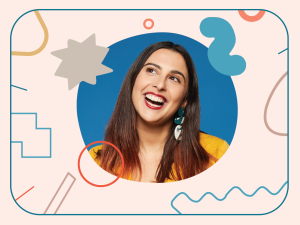
June 28, 2023
In the series finale of How’d You Get THAT Job?!, host Eleni Matheou unpacks what we’ve learned about how people thrive at work.

June 14, 2023
Nathan Friedman is the co-president and chief marketing officer of Understood.org. And he has dyslexia and ADHD. Learn how he got into the C-suite.
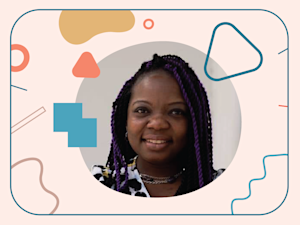
May 31, 2023
Dr. Loucresie Rupert is a child, adolescent, and adult psychiatrist with ADHD. She didn’t have an easy time getting her diagnosis as a Black woman.
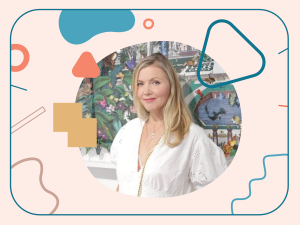
May 17, 2023
Kristjana Williams is a London-based Icelandic artist with dyslexia. She wasn’t diagnosed until she was 25, and now she has her own studio.

May 3, 2023
Aideé Chávez Frescas has ADHD, and is a senior social media manager at Understood. Her posts help end stigma and show others they’re not alone.
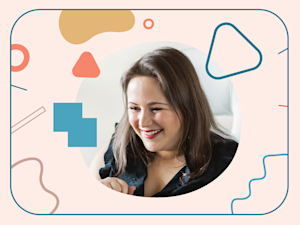
April 19, 2023
Alex Gilbert is a career coach with ADHD and dyslexia. After working in leadership development for years, she started her own coaching business.
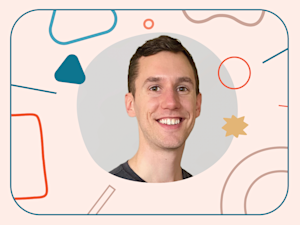
April 5, 2023
Dan Reis was diagnosed with ADHD during the pandemic. Now, he’s made it his mission to explore coping strategies to help him get his work done.
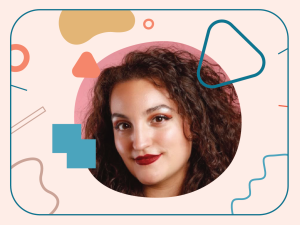
March 22, 2023
Rachel Basoco’s two jobs keep things interesting for her ADHD. She works full time at Fidelity, and part time at 11:11 Media, Paris Hilton’s company.
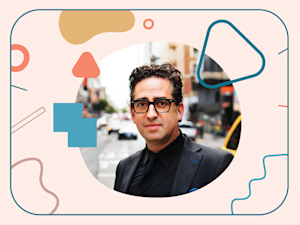
March 8, 2023
Gil Gershoni says that everything he does is dyslexic. He founded the branding firm Gershoni Creative and hosts the Dyslexic Design Thinking podcast.
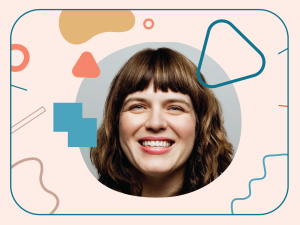
February 22, 2023
Claire Odom is a psychotherapist with ADHD. She’s also a disability inclusion consultant who has advice on navigating the workplace.
